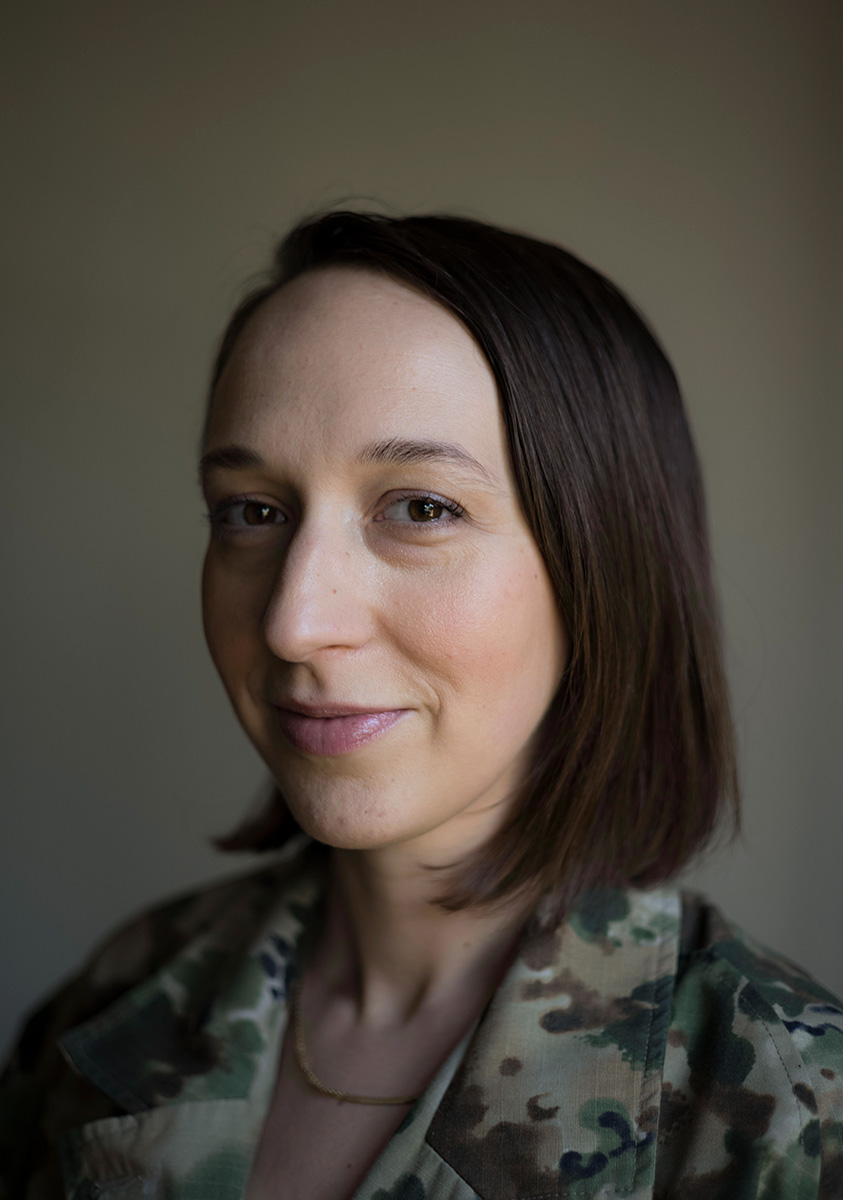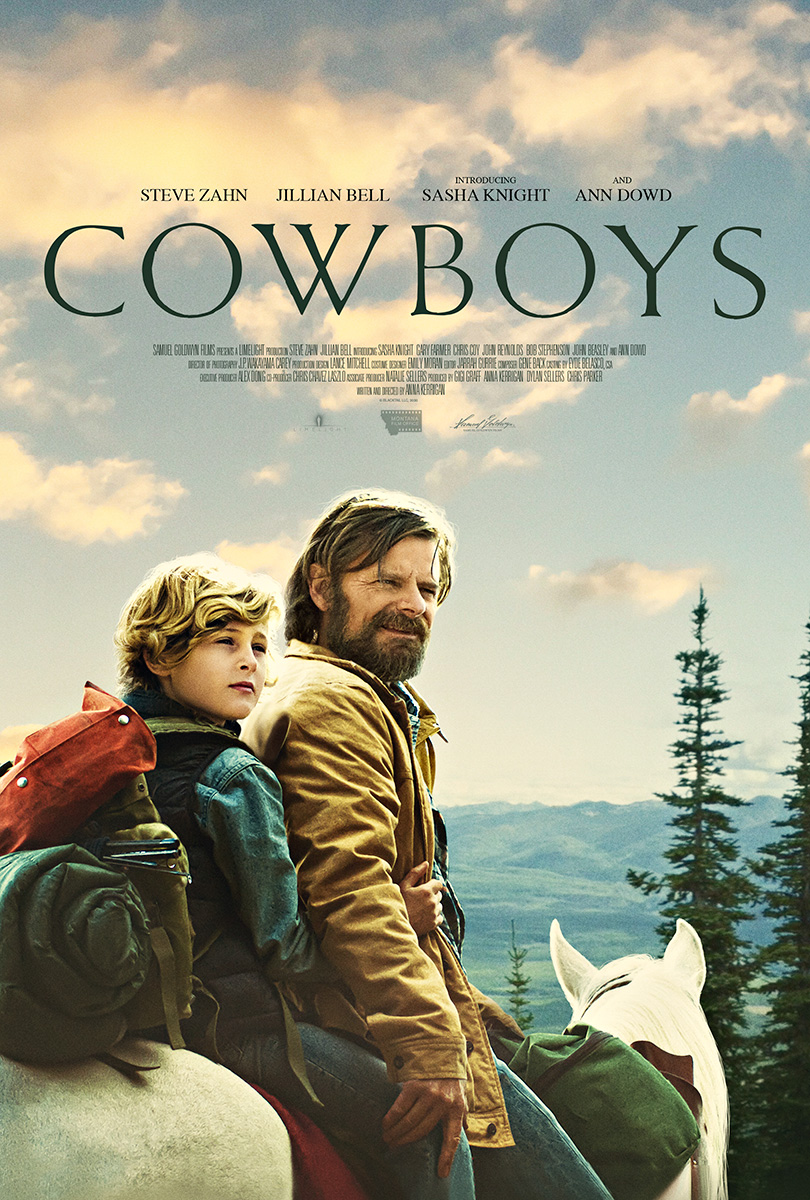Filmed in the Flathead, ‘Cowboys’ is a Tough and Tender Tale of a Transgender Child
Director Anna Kerrigan’s debut feature starring Steve Zahn seizes on a topical social issue in this non-traditional western drama
By Tristan Scott
Writer-director Anna Kerrigan’s decision to set her debut feature film in the Flathead Valley wasn’t based on the intersection of Montana’s transgender rights movement with its conservative Western politics, nor was it inspired by a collision of current events that have converged to give the 2020 indie drama a well-deserved moment.
Instead, it was inspired by what possesses many of us to inscribe this rugged slice of Montana paradise in our souls — a feeling that we are the last lucky people in the history of the world.
For Kerrigan, who grew up in Los Angeles but, as the seasonal guest of a family friend, spent childhood summers plying the idyllic waters of Flathead Lake with sun-kissed toes, no one lucky enough to call such a place home should be deprived of its magic, and certainly not for reasons beyond their control.
“The Flathead taps into this idea that I always had of America but I didn’t ever see except on these visits, this sort of summer-camp experience,” Kerrigan said during a recent interview with the Beacon. “As I got older, I realized there was this vacation-type vision I had of the place that was at odds with its reality, and as I became politically aware I realized it’s a little more conservative here. So when I started writing the story, knowing that I wanted to set my characters in the Flathead as part of a modern Western, I started thinking about, ‘Who are the modern outlaws?’ And I settled on a mentally ill father and his transgender son.”

The bipolar father at the center of the story is Troy, portrayed in a superlative performance by Steve Zahn, while his 11-year-old transgender son, Joe, is played by award-winning newcomer Sasha Knight, who is a gender nonconforming actor in real life. Rounding out the family dynamic is the pragmatic mother Sally, played by Jillian Bell, who dismisses Joe’s penchant for pearl-snap shirts, short-cropped hair and rodeo belt buckles as a tomboy phase. Meanwhile, Troy gains his son’s confidence and desperately tries to convince his wife that this is more than a phase.
“Sometimes I think aliens put me into this girl body as a joke,” Joe (or Josie to mom) tells Troy one night after spinning doughnuts in a gravel parking lot, a nod to the enduring rural pastime.
The film’s narrative nuances reveal themselves through flashbacks in which Joe appears posing uneasily for family photos in long hair and a dress, or sneaking peaks of himself standing before a full-length mirror in Wranglers and cowboy boots, before swinging back into the present during which Joe and Troy are on the lam.
“We’re outlaws son,” Zahn, who has bipolar disorder, says in one manic moment upon seeing their photos on the front page of the local daily newspaper.
Anyone familiar with Kalispell’s historic downtown will delight at the familiar landmarks, which include a lengthy scene shot in Western Outdoor — “I love that store!” Kerrigan said of her selection of the shooting location. “That’s where I bought my first Swiss Army Knife.” — as well as a tracking shot along Main Street’s other prominent storefronts, like Norm’s News. Discerning viewers might also recognize vistas from atop Desert Mountain above Martin City, or a high-paced river rescue below Belton Bridge on the outskirts of Glacier National Park.

To assist with shooting in those locations, the film received a $50,000 Big Sky Film Grant in 2018, providing an incentive for productions to come to the Treasure State and providing an edge to local filmmakers eager to share Montana’s captivating spirit with the outside world.
In “Cowboys,” which was filmed over the course of 20 days in September and October 2019, and was originally slated for release in 2020 before the pandemic delayed it, the Flathead Valley also provides a point of stark contrast. The social politics surrounding transgender rights have risen to full froth in recent months, pitting Republican lawmakers in the Flathead against Democrats and some moderate conservatives, while imbuing even greater meaning to the storyline’s conflict with society and framing the father-and-son duo as a modern day Bonnie and Clyde.
“Cowboys” was set to have its world premiere in April 2020 at the Tribeca Film Festival, and the festival’s cancellation due to the coronavirus pandemic was a disappointment for Kerrigan, although the young director’s spirits were buoyed when it won best actor honors for Zahn and best screenplay for Kerrigan at TFF’s online edition. Following those accolades, Samuel Goldwyn Films purchased the film’s North American rights, providing “Cowboys” with a lofty platform despite the cinematic constraints brought on by the pandemic.
In August 2020, the film went on to win the Grand Jury Prize for newcomer Knight at Outfest, an LGBTQ-oriented festival in Los Angeles, and the intensifying pressure in conservative circles to erode transgender rights has provided the film with an unexpected political charge.
For Kerrigan, who began writing the script a half-decade ago, and had no sense of how the political winds might shift, both nationally or in Montana, the story is timeless in a way, even as it gains greater meaning along with the transgender rights movement.
“I started writing this movie like five years ago, so you never know what is going to happen politically,” she said. “But I think that there is always this internal conflict that I have about the friends and the places and the landscapes that I love in conservative states — I love them, but at the same time how can I love you when you hate trans people, or gay people, or people of color?”
“Cowboys” is available to watch on Amazon Prime Video.